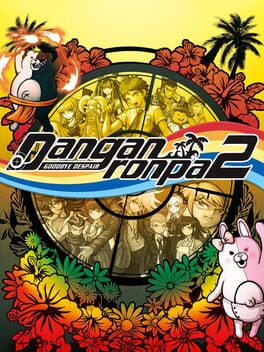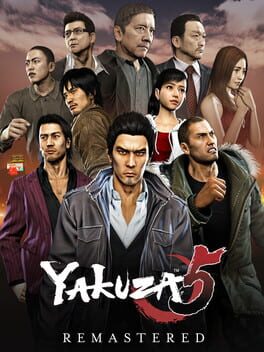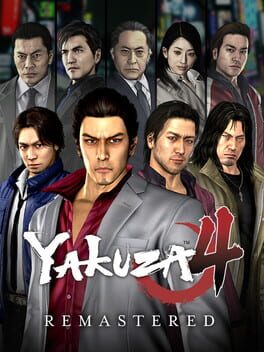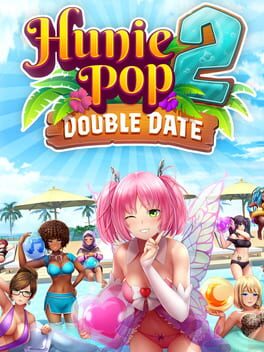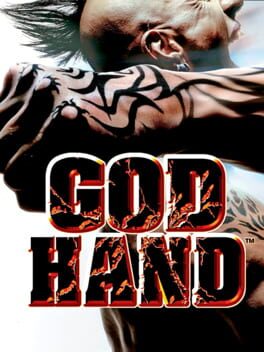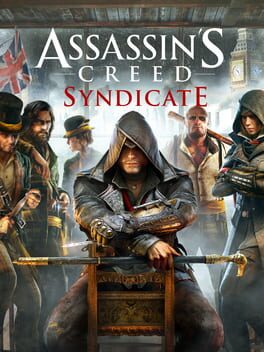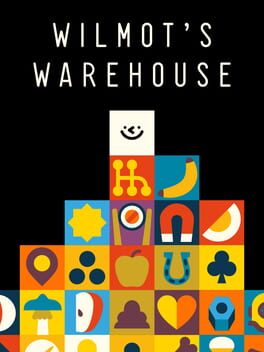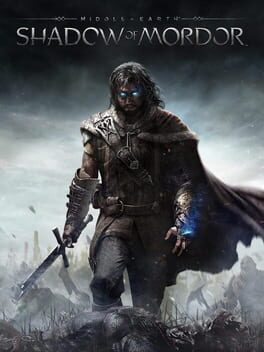jobosno
BACKER
1819 Reviews liked by jobosno
NBA 2K21
2020
The 2k franchise is certainly one of the largest grifts in the videogame industry. So much so that at this point, with four iterations in a row of nearly identical games, it deserves some grudging respect. There are very few games who would so daringly and obviously turn their IP into a giant advertisement. "The Neighborhood", an online communal area where players can team up and play against one another, has quite literally turned into an online strip mall. Players can run into real life shoe stores, signs for popular sports drinks are plastered on every square inch of space, energy bars and drinks which boost your player’s performance are all product placement. There are even unskippable car advertisements before games. Most of the game modes are repetitive, filled with loot box mechanics to gather players to form your team while the management sim portions leave much to be desired.
The Career mode, however, is undoubtedly the most fascinating part of the game. It’s also one of the most important, as the player you create for the career is also used to play multiplayer. The story is nothing like anything I have ever experienced playing a videogame. Almost none of your interactions with any of the characters on your journey feel in any way like you are having a human conversation. Facial expressions don't make sense. Pauses in strange places and lasting the wrong amount of time. Sometimes conversations just completely derail. Your character's reactions to the things people say generally don't make sense. All of the characters seem to have trouble reading the general feeling within various situations, like dates that are meant to be relaxed are really tense and locker room discussions that are meant to be tense feel comical. In one scene your character may look unbothered about something someone said, and in the next they're absolutely enraged. Even the fake text messages are weird, with emojis in the wrong places or at the wrong times, and word choice just feels off.
It is so alien and foreign to the human experience that it transcends any simple distinction between “good” or “bad”. It feels as if a computer was tasked with collecting the scripts of the most famous sports movies, use them to form the basis of a plot structure, and then run the whole thing through a program called "human-based dialogue adjustments". It is an incredible experience, made even more incredible by the fact that the franchise is often able to draw big named writers to their team. Gazing upon your player’s twisted, tortured expression as he shares a joke with a teammate, who then stares unblinkingly into your characters soul for six seconds before laughing hysterically, is a truly disturbing experience. Listening to your character use internet slang from 2012 while on a first date with a love interest who is drilling you about being too arrogant after having just met you, made me embarrassed. As if I were sitting in a booth at a restaurant with a couple arguing one table over.
To know that someone wrote a story this soulless, so devoid of critique or higher meaning, leads me away from the conclusion that this is simply poor writing, and towards the idea that this is an inadvertent critique of not only the video game industry, but the entire economic system within which it is situated. Because the game itself, the simulation of the game of basketball, is actually quite well done. The movements of the players are fluid and relatively natural. The player is rewarded for smart play and the ai players act in relatively normal ways. It’s the best basketball game on the market, which makes its story stand out in even more marked relief. The career mode tells the story of a world dominated by endless consumption performed by irreparably alienated populous. A people whose screams of agony over their exploited labor is drowned not by the harsh jackboot of violence and repression, but soothed into the abyss by finding meaning through consumption. The competent basketball simulation is merely a platform for the real purpose of its existence: selling virtual currency, corporate sponsorship, product placement and brand building. The story of the game is this reality fully realized and articulated. Meaningless conversation and relationships come and go as the player proceeds towards their inevitable NBA career. The increasingly incoherent writing reaches a crescendo as the story nears its end, knowing that its time is short and that it is powerless to stop this slow march into a life devoid of meaning or purpose. Without strong relationships or a sense of community, the main character and likewise the player are left adrift in a confusing, alien life that doesn’t make sense and whose only recognizable features are flashes of corporate sponsorship and advertisements.
NBA 2k21 is, without a doubt, one of the strongest critiques of neoliberal capitalism that I have played in all my years. And for that, it should receive a well-deserved 2 stars.
The Career mode, however, is undoubtedly the most fascinating part of the game. It’s also one of the most important, as the player you create for the career is also used to play multiplayer. The story is nothing like anything I have ever experienced playing a videogame. Almost none of your interactions with any of the characters on your journey feel in any way like you are having a human conversation. Facial expressions don't make sense. Pauses in strange places and lasting the wrong amount of time. Sometimes conversations just completely derail. Your character's reactions to the things people say generally don't make sense. All of the characters seem to have trouble reading the general feeling within various situations, like dates that are meant to be relaxed are really tense and locker room discussions that are meant to be tense feel comical. In one scene your character may look unbothered about something someone said, and in the next they're absolutely enraged. Even the fake text messages are weird, with emojis in the wrong places or at the wrong times, and word choice just feels off.
It is so alien and foreign to the human experience that it transcends any simple distinction between “good” or “bad”. It feels as if a computer was tasked with collecting the scripts of the most famous sports movies, use them to form the basis of a plot structure, and then run the whole thing through a program called "human-based dialogue adjustments". It is an incredible experience, made even more incredible by the fact that the franchise is often able to draw big named writers to their team. Gazing upon your player’s twisted, tortured expression as he shares a joke with a teammate, who then stares unblinkingly into your characters soul for six seconds before laughing hysterically, is a truly disturbing experience. Listening to your character use internet slang from 2012 while on a first date with a love interest who is drilling you about being too arrogant after having just met you, made me embarrassed. As if I were sitting in a booth at a restaurant with a couple arguing one table over.
To know that someone wrote a story this soulless, so devoid of critique or higher meaning, leads me away from the conclusion that this is simply poor writing, and towards the idea that this is an inadvertent critique of not only the video game industry, but the entire economic system within which it is situated. Because the game itself, the simulation of the game of basketball, is actually quite well done. The movements of the players are fluid and relatively natural. The player is rewarded for smart play and the ai players act in relatively normal ways. It’s the best basketball game on the market, which makes its story stand out in even more marked relief. The career mode tells the story of a world dominated by endless consumption performed by irreparably alienated populous. A people whose screams of agony over their exploited labor is drowned not by the harsh jackboot of violence and repression, but soothed into the abyss by finding meaning through consumption. The competent basketball simulation is merely a platform for the real purpose of its existence: selling virtual currency, corporate sponsorship, product placement and brand building. The story of the game is this reality fully realized and articulated. Meaningless conversation and relationships come and go as the player proceeds towards their inevitable NBA career. The increasingly incoherent writing reaches a crescendo as the story nears its end, knowing that its time is short and that it is powerless to stop this slow march into a life devoid of meaning or purpose. Without strong relationships or a sense of community, the main character and likewise the player are left adrift in a confusing, alien life that doesn’t make sense and whose only recognizable features are flashes of corporate sponsorship and advertisements.
NBA 2k21 is, without a doubt, one of the strongest critiques of neoliberal capitalism that I have played in all my years. And for that, it should receive a well-deserved 2 stars.
Killer7
2005
Yakuza 5 Remastered
2019
Yakuza 4 Remastered
2019
Yume Nikki
2004
Tsukihime
2000
God Hand
2006
"If a stupid pothead with barely enough time spent enjoying this game like me can do it on Level-Die, I have no idea what is wrong with certain people whose job it is to inform the gaming public."
This quote was in the description of a video that was meant as a response to IGN's now infamous review of this game by a user named Saurian, 14 years ago. All there was to the video was a demonstration of the user's skill with the combat system. (You can find it here: https://www.youtube.com/watch?v=MyfbtSyX3mc)
Everyone knows of IGN's infamous 3/10 review. Before I knew of God Hand, I knew of that image that compared this game's 3.0 score to Imagine Party Babyz 7.5 score, which was meant to show the sheer incompetence of IGN. Now for me, I'm a little more laid back when I see mainstream game reviewers' scores since the majority of them are written by independent writers which may not reflect the whole staff's opinion, yet is put onto review aggregate websites as the companies score, rather than the independent writer. Chris Roper, the man who wrote the God Hand review, didn't even do the review for Imagine Party Babyz, but people look at both reviews as it was written by one entity, which I feel is a major problem with mainstream game reviewing outlets as a whole.
That being said though, Chris Roper's review is still awful, the whole thing is written with a clear level of frustration towards the game, to the point where it becomes condescending, but that doesn't mean there aren't valid points within the review. It's got weird tank controls that feel out of place for a 3rd person action beat 'em up. The level design revolves around basic geometry and shapes and textures look very low-res (The cage that's used for the Chihuahua race isn't even textured), the game uses random elements for spawning items and even spawning demons from dead enemies, and the game doesn't refill health upon entering new sections in a stage.
I think what caused such backlash from game critics for God Hand was its time of release. God Hand was a late 2006 PS2 release, and the PS2 gen saw what was considered the golden age of character action games. We got Devil May Cry 1 & 3, Kingdom Hearts 1 & 2, Viewtiful Joe, Okami, Resident Evil 4, God of War, among other games. Comparing to all of those games that released within that time frame, God Hand's tank controls and basic level design looked outdated and primitive. The budget for this game was most likely 5 dollars and was used so Shinji Mikami could get lunch for the single day it was developed.
Here's the thing though: None of that fucking matters.
Never before have I played a game that didn't give a single flying shit about looking pretty or adding in less samey enemy types or making the game easier to give it more appeal. God Hand sacrificed all of those things to make it the game it is: a game about constantly testing the player.
God Hand's most notorious mechanic is the dynamic difficulty system. Similar to Resident Evil 4, the game will make enemy AI more aggressive, do new moves, or even group up in pairs more depending on what level you are at (it goes from Lvl 1, 2, 3, Die) but unlike RE4, God Hand doesn't hide it in the background. It's constantly in your face at the bottom left-hand screen at all times, letting the player know what level they are at and when they'll get to the next one. When playing the game for the first few hours, you'll most likely stay around the level 1-2 area, but later on, when you get more accustomed to the game's mechanics, you might start staying around the level 3 and level Die area, even if the game starts throwing more challenging enemy types at you.
That's when I realized something special about God Hand. It subtlety fixes one of the biggest hurdles in the action game genre: Ranking systems. Most action games have a system where at the end of each level, it tallies how well you did on certain aspect like time, combos, and even collecting currency and gives the player an award adjusted to how well they did (be it a higher letter or a shinier trophy.). While these are meant to encourage repeat playthroughs, they can also be frustrating to newer players, as they are constantly being told they aren't doing good enough, despite action games being about learning mechanics and repeating those levels to get better at them. You aren't encouraged to know what to look out for on each level to even get a good rank for your first time either, which that in itself causes more confusion or frustration to newer players.
God Hand instead takes those ranking systems and discards them, and rather than tally you at the end of a level, you are being shown just exactly how good you are doing, and at the end of each stage you are rewarded with more money based on how many enemies you killed at the rank you were in, rather than giving you a trophy that's only meant for bragging rights. I believe this is what makes God Hand so inherently fun on the face of it. It's not only a great action game with tightly designed combat, enemies, and bosses, but also a game that actively encourages the player to get better at it. I first feared that moment I hit level 3, but as the game went on, I kept wanting to get on level Die. Weaving effortlessly through your enemies punches and counter-attacking crowds of enemies with your sweep kicks, or launching them in the air and hitting them with a Shoryuken to a kick in the face sending them flying. Your adrenaline starts pumping as you see that meter go higher and higher. You think you are getting good at God Hand, and it's starting to take its gloves off for you, the player. But you start to feel like a god yourself. You feel like you can punch a hole through concrete, the game's challenge is just so exciting... and then it kicks your ass! You feel like you've been brutalized. I've had this happen to me with each death, but never once I did I ever get tired of this game. I kept going at it, because every time I hit level Die and survived those encounters, I never felt a more satisfying feeling in a video game.
I think about the quote I introduced in the first paragraph a lot, because despite God Hand being one of the most challenging games I've ever played, it is also a game I think anyone can enjoy, and I'm very glad I got to play it myself. It's compromised in so many areas, but what it does right left me with one of the most satisfying and memorable action games I've ever played. So, from the bottom of my heart: Play God Hand... it's probably better than Imagine Party Babyz.
This quote was in the description of a video that was meant as a response to IGN's now infamous review of this game by a user named Saurian, 14 years ago. All there was to the video was a demonstration of the user's skill with the combat system. (You can find it here: https://www.youtube.com/watch?v=MyfbtSyX3mc)
Everyone knows of IGN's infamous 3/10 review. Before I knew of God Hand, I knew of that image that compared this game's 3.0 score to Imagine Party Babyz 7.5 score, which was meant to show the sheer incompetence of IGN. Now for me, I'm a little more laid back when I see mainstream game reviewers' scores since the majority of them are written by independent writers which may not reflect the whole staff's opinion, yet is put onto review aggregate websites as the companies score, rather than the independent writer. Chris Roper, the man who wrote the God Hand review, didn't even do the review for Imagine Party Babyz, but people look at both reviews as it was written by one entity, which I feel is a major problem with mainstream game reviewing outlets as a whole.
That being said though, Chris Roper's review is still awful, the whole thing is written with a clear level of frustration towards the game, to the point where it becomes condescending, but that doesn't mean there aren't valid points within the review. It's got weird tank controls that feel out of place for a 3rd person action beat 'em up. The level design revolves around basic geometry and shapes and textures look very low-res (The cage that's used for the Chihuahua race isn't even textured), the game uses random elements for spawning items and even spawning demons from dead enemies, and the game doesn't refill health upon entering new sections in a stage.
I think what caused such backlash from game critics for God Hand was its time of release. God Hand was a late 2006 PS2 release, and the PS2 gen saw what was considered the golden age of character action games. We got Devil May Cry 1 & 3, Kingdom Hearts 1 & 2, Viewtiful Joe, Okami, Resident Evil 4, God of War, among other games. Comparing to all of those games that released within that time frame, God Hand's tank controls and basic level design looked outdated and primitive. The budget for this game was most likely 5 dollars and was used so Shinji Mikami could get lunch for the single day it was developed.
Here's the thing though: None of that fucking matters.
Never before have I played a game that didn't give a single flying shit about looking pretty or adding in less samey enemy types or making the game easier to give it more appeal. God Hand sacrificed all of those things to make it the game it is: a game about constantly testing the player.
God Hand's most notorious mechanic is the dynamic difficulty system. Similar to Resident Evil 4, the game will make enemy AI more aggressive, do new moves, or even group up in pairs more depending on what level you are at (it goes from Lvl 1, 2, 3, Die) but unlike RE4, God Hand doesn't hide it in the background. It's constantly in your face at the bottom left-hand screen at all times, letting the player know what level they are at and when they'll get to the next one. When playing the game for the first few hours, you'll most likely stay around the level 1-2 area, but later on, when you get more accustomed to the game's mechanics, you might start staying around the level 3 and level Die area, even if the game starts throwing more challenging enemy types at you.
That's when I realized something special about God Hand. It subtlety fixes one of the biggest hurdles in the action game genre: Ranking systems. Most action games have a system where at the end of each level, it tallies how well you did on certain aspect like time, combos, and even collecting currency and gives the player an award adjusted to how well they did (be it a higher letter or a shinier trophy.). While these are meant to encourage repeat playthroughs, they can also be frustrating to newer players, as they are constantly being told they aren't doing good enough, despite action games being about learning mechanics and repeating those levels to get better at them. You aren't encouraged to know what to look out for on each level to even get a good rank for your first time either, which that in itself causes more confusion or frustration to newer players.
God Hand instead takes those ranking systems and discards them, and rather than tally you at the end of a level, you are being shown just exactly how good you are doing, and at the end of each stage you are rewarded with more money based on how many enemies you killed at the rank you were in, rather than giving you a trophy that's only meant for bragging rights. I believe this is what makes God Hand so inherently fun on the face of it. It's not only a great action game with tightly designed combat, enemies, and bosses, but also a game that actively encourages the player to get better at it. I first feared that moment I hit level 3, but as the game went on, I kept wanting to get on level Die. Weaving effortlessly through your enemies punches and counter-attacking crowds of enemies with your sweep kicks, or launching them in the air and hitting them with a Shoryuken to a kick in the face sending them flying. Your adrenaline starts pumping as you see that meter go higher and higher. You think you are getting good at God Hand, and it's starting to take its gloves off for you, the player. But you start to feel like a god yourself. You feel like you can punch a hole through concrete, the game's challenge is just so exciting... and then it kicks your ass! You feel like you've been brutalized. I've had this happen to me with each death, but never once I did I ever get tired of this game. I kept going at it, because every time I hit level Die and survived those encounters, I never felt a more satisfying feeling in a video game.
I think about the quote I introduced in the first paragraph a lot, because despite God Hand being one of the most challenging games I've ever played, it is also a game I think anyone can enjoy, and I'm very glad I got to play it myself. It's compromised in so many areas, but what it does right left me with one of the most satisfying and memorable action games I've ever played. So, from the bottom of my heart: Play God Hand... it's probably better than Imagine Party Babyz.
First game cleared on a next-gen console! Downloaded this onto my Series S after waxing nostalgic for pre-reboot Assassin's Creed games. And you know what? My nostalgia was wrong!
I am happy I played this game, because it helped me perfectly encapsulate everything I hate about AAA video games from the last ten years. An open world littered with meaningless collectables which just require you to go to a spot, press B, and get XP. The same jank-ass controls that have plagued this series since goddamn Altair.
This game almost completely dodges saying or even showing anything interesting about the period, a time rife with classism and industry and colonialism. The one hilarious exception is that the game goes balls to the wall on the issue of child labor, which it depicts by making you sneak into factories, violently murder people in front of children, then just say "hey, you're good now" to all the kids, to get a big banner that says "CHILDREN LIBERATED". Then, when you go back to the factory after it's in your control, the kids are STILL THERE.
The writing is also garbage. Almost 24 hours of playtime later, I still have no idea why the villain is the villain other than "he is a Templar and Templars are bad". He has a scheme in literally the last mission to kill a bunch of English heads of state, which would maybe be compelling if I didn't spend all game assassinating heads of state. The game attempts conflict between the leads and a romance subplot, both of which are terrible. No characters have any personality or motivation for doing what they do, other than "they are a character in a video game and they have to do this for the video game to happen".
God I really wish I didn't hate this game.
I am happy I played this game, because it helped me perfectly encapsulate everything I hate about AAA video games from the last ten years. An open world littered with meaningless collectables which just require you to go to a spot, press B, and get XP. The same jank-ass controls that have plagued this series since goddamn Altair.
This game almost completely dodges saying or even showing anything interesting about the period, a time rife with classism and industry and colonialism. The one hilarious exception is that the game goes balls to the wall on the issue of child labor, which it depicts by making you sneak into factories, violently murder people in front of children, then just say "hey, you're good now" to all the kids, to get a big banner that says "CHILDREN LIBERATED". Then, when you go back to the factory after it's in your control, the kids are STILL THERE.
The writing is also garbage. Almost 24 hours of playtime later, I still have no idea why the villain is the villain other than "he is a Templar and Templars are bad". He has a scheme in literally the last mission to kill a bunch of English heads of state, which would maybe be compelling if I didn't spend all game assassinating heads of state. The game attempts conflict between the leads and a romance subplot, both of which are terrible. No characters have any personality or motivation for doing what they do, other than "they are a character in a video game and they have to do this for the video game to happen".
God I really wish I didn't hate this game.
Wilmot's Warehouse
2019
One of my things about this game is when you get a new object and it's unclear what exactly it is. You need to organize is somewhere, so you come up with your best guess as to what it is and sort it accordingly. Maybe you see a white triangle with some yellow on one side and go "Well, I guess I'll call this a tent and put it with the outdoors objects, next to the trees and mountains." But then you talk to a friend or see a stream of someone playing and they get that same item and go "Ah! This is a block of cheese, I will sort it with the food objects" A food? That's not a food, it's a tent! You can't eat a tent! But then you see someone else get that same yellow and white triangle item and they say "I Do Not Care about the thing itself, it is a yellow background and so it goes with the other yellow background items." How could they do that?? Putting a tent next to rings and hiking boots and dinosaurs. How will they ever find anything with a sorting system like that!? And yet these are all viable ways to play Wilmot's Warehouse because it's ultimately about whatever system works best for you. There is no "optimal" way to play like there is in most games because the most "optimal" way is for you to play in whatever way makes the most sense to you and I think that's beautiful.



